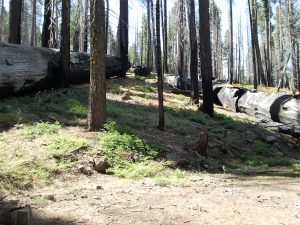Luke 9:18-27
While he was praying in private and his disciples were with him, he asked them, “Who do the crowds say that I am?”They answered, “John the Baptist; others, Elijah; still others, that one of the ancient prophets has come back.” “But you,” he asked them, “who do you say that I am?” Peter answered, “God’s Messiah” (9:18-20 CSB).
It’s time for a brief review. Recall the question of Herod that Luke uses in this chapter to direct our thoughts (“Who, then, is this…?”, 9:9). He wants us to ask that question for ourselves and find that the answer is “Jesus is the Christ (Messiah), the Son of the living God.” In our three previous posts we listened to the first part of Luke’s presentation. Jesus has a great message, a great vision, and he provides great satisfaction.
In this second section, Jesus asked a similar question, and we hear three answers: that of the crowds, of the apostles, and of the Lord Jesus himself. Let’s think about these three answers.
This section in Luke’s Gospel immediately follows the feeding of the five thousand. But from a study of the other Gospels we know that some time had elapsed between these two events. (Luke arranges his material in a ‘theological’ rather than a strictly chronological manner.) Therefore, people have had time to reflect on the significance of a number of Christ’s miracles, especially the feeding of the five thousand, which Christ prodded them to meditate on (Matthew 16:5-12). Jesus had already challenged them about their commitment to him (John 6:66-71). Now the Lord Jesus brought all to a climax. So he asked, “Who do the crowds say I am?”
First, let’s consider the incorrect answer of the crowds (9:18-19). The crowds answered from their religious tradition, which was old covenant Judaism. They had the words of the prophets written down in the Scriptures. They could read about how prophets had acted, and so it was easy for the to connect the dots.
- This is the usual way that people answer. “What does my religious background tell me to say?” On the other hand, Christianity demands that we listen to the truth and think. True Christianity boldly walks into the marketplace of human opinions and says, “Let’s look at and think about all reality. Have you seen and thought? Then know that the only answer is found in the living God and the way to him is through Jesus the Messiah.”
- The answers they gave seemed to honor Jesus. “Surely Jesus is a great man. At the very least he is one of God’s prophets!” The problem is that seeming to honor Jesus is incorrect. We must know who he really is. When we think about who Jesus is, a partial answer can be spiritually dangerous or fatal.
Second, the crowds gave the wrong answer for various reasons.
- Some who thought Jesus was John the Baptist either failed to notice that John and Jesus were contemporaries or paid no attention to what John said and the Scriptures said. John’s whole message was Christ-focused (cf. John chapters 1 & 3).
- Some who thought Jesus was Elijah failed to understand the Scriptures. The Elijah to come was only a forerunner or herald of Christ. Jesus himself had explained that John the Baptist was the Elijah to come (Mt 11:11-15).
- Some who thought that Jesus was one of the prophets returned to life had no Biblical warrant for that opinion and failed to listen to what the Scriptures said about Christ.
Each of these groups shared two common failings. First, they failed to listen to what the Scriptures said about the Christ. What about you? Do you listen to what the word of God says about Christ? You say you want to know him. Then how much time to you spend thinking about him?
Action Step: Read the Gospel of Mark through carefully ten times asking God to reveal Jesus Christ to your heart. (Yes, ten times! You have the opportunity to do this during our current “stay at home” order.) Listen carefully to every title or description that Mark uses to reveal the full identity of Jesus Christ to his readers.
Second, they had failed to comprehend what Jesus had done and explained. He did many miraculous signs, ending disease and suffering. In a couple years, the lives of many people had radically changed. He told them about God’s kingdom (his saving reign) and how it had entered the human condition with his arrival. He had told them that he was the bread of life (John 6:35). But people had rejected his message about himself. Therefore, they had a wrong view of Jesus.
Action Step: Read through John’s Gospel, meditating on each of the seven miraculous signs and the I Am sayings.
There is an old saying that “close enough” is “good in horseshoes and hand grenades”. But close is not sufficient in matters of truth. Jesus said, “I am the way and the truth and the life. No one comes to the Father except through me” (John 14:6 NIV). Do you know him? Have you come to the Father through him?
Grace
and peace
David

 Father, I want those you have given me to be with me where I am, and to see my glory, the glory you have given me because you loved me before the creation of the world (John 17:24 NIV).
Father, I want those you have given me to be with me where I am, and to see my glory, the glory you have given me because you loved me before the creation of the world (John 17:24 NIV). Matthew 22:15-40
Matthew 22:15-40 Psalm 10:1-11
Psalm 10:1-11